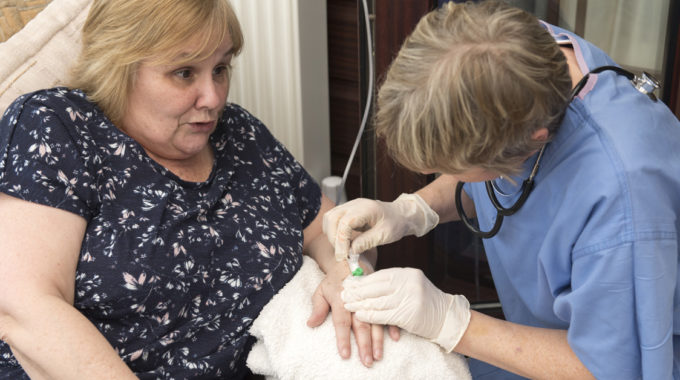
Even After Short Hospital Stays, Home Health Lowers Costs
In February, the American Journal of Managed Care published a first-of-its-kind study verifying the value of Medicare-certified home health following hospital stays.1 This study added to a group of high-powered studies demonstrating that home health lowers overall healthcare costs and improves outcomes following a hospitalization. The unique aspect of the current study was that it covered the full range of diagnoses discharged from hospitals while also focusing specifically on short hospital stays. Short hospital stays serve as a proxy for identifying lower acuity patients. Thusly, the study shows that even patients who are in relatively good shape leaving the hospital do better when they receive home health.
Past Studies Showing Home Health Improving Outcomes Following Hospitalization
A previous peer-reviewed study found that patients who refuse home health suffered 25% higher mortality rates and twice as many 30-day readmissions, while costing payors over $15,000 more in one year.2 This adds to the results of a separate industry study commissioned by the Centers for Disease Control and the US Department of Health and Human Services. That study was the largest to date, analyzing more than 36,000 discharges. Across a wide range of diagnoses, researchers similarly found large reductions in 30-day readmission rates associated with home health.3 Before that study, numerous studies demonstrated how home health protects patients, as measured by 30-day readmission rates, but focused on specific situations: dyad interventions for stroke survivors,4 nutritional interventions,5 A1c management,6 home nursing following coronary artery bypass graft,7 etc.
The Value of Home Health Following Short Hospital Stays
In the current study, Rasca et al. analyzed more than 19,000 Medicare Advantage, short-stay discharges from more than 8,000 hospitals nationwide. Roughly 4,000 received home health while about 15,000 did not. Those patients who received home health had 60% lower 30-day-readmission risk and 11% lower 90-day costs. The savings added up to $2,272 per patient. In unadjusted numbers, the home health patients enjoyed a 66% lower all-cause mortality rate (0.2% vs. 0.6%, p=0.001). In adjusted numbers using instrumental variable analysis, home health patients saw a 65% lower mortality risk, but this did not achieve statistical significance.
References
- Racsa P, Rogstad T, Stice B, Flagg M, Dailey C, Li Y, Sallee B, Worley K, Sharma A, Annand D. Value-based care through postacute home health under CMS PACT regulations. The American Journal of Managed Care. 2022 Feb 1;28(2):e49-54.
- Xiao R, Miller J, Zafirau W, et al. Impact of home health care on health care resource utilization following hospital discharge: a cohort study. The American Journal of Medicine. 2018; 131 (4): 395-407.
- Quality Insights. New Jersey Home Health Readmission Report. US Dept Health Human Services. 2016; Pub QI-C3-112015.
- Bakas T, Clark P, Kelly-Hayes M, et al. Evidence for stroke family caregiver and dyad interventions: a statement for healthcare professionals from the American Heart Association and American Stroke Association. Stroke. 2014; 45 (9): 2836-2852.
- Iizaka S, Okuwa M, Sugama J, Sanada H. The impact of malnutrition and nutrition-related factors on the development and severity of pressure ulcers in older patients receiving home care. Clinical Nutrition. 2010; 29 (1): 47-53.
- Centers for Medicare & Medicaid Services. Response to Comments for Home Health Plans of Care: Monitoring Glucose Control in the Medicare Home Health Population with Type II Diabetes Mellitus. 2014; LCDs L35413 and L35132.
- Hall M, Esposito R, Pekmezaris R, et al. Cardiac surgery nurse practitioner home visits prevent coronary artery bypass graft readmissions. Ann Thorac Surg. 2014; 97: 1488-95.






